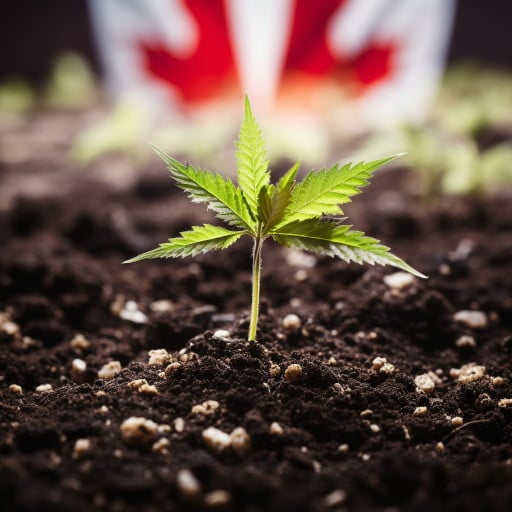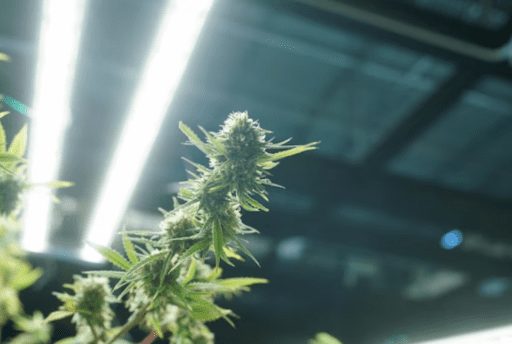CBD The Microbe Micro-dosing Miracle?

Table of Contents
Cannabidiol (CBD) and its Antibiotic Prowess
Cannabidiol (CBD), the renowned calming compound derived from cannabis, has recently demonstrated antibiotic properties in mouse models that make it a promising candidate for future antibacterial treatments. With antibiotic resistance becoming a significant global health concern, the discovery of new antibiotic candidates is invaluable.
Recent research suggests that CBD is effective against various bacterial species known to cause severe infections, such as Staphylococcus aureus. Presented at the American Society for Microbiology’s annual meeting, the study’s authors claim that CBD’s antibiotic power is comparable to that of established antibiotics like vancomycin. However, the exact mechanism behind CBD’s bacteria-fighting capability remains a mystery.
Deciphering CBD’s Bacteria-killing Mechanism
Dr. Mark Blaskovich, who led the research at the University of Queensland in collaboration with drug discovery company Botanix Pharmaceuticals Ltd., expressed interest in further investigating the actions of CBD. While many key antibiotics, such as penicillin, function by deactivating enzymes in bacterial cell walls, it is unclear whether CBD utilizes a similar method or an alternative one.
Blaskovich emphasizes that a thorough understanding of CBD’s killer effects is not necessarily required for drug production, as long as the compound is effective at killing bacteria without inducing resistance. This appears to be the case for CBD.
The Resistance Question
Antibiotic resistance arises when a random genetic mutation in a bacterium provides resistance against antibiotics, allowing the bacterium to survive and pass on its mutation. According to the research team, CBD maintains its killer activity even when exposed to highly resistant bacteria. Moreover, it remains effective under extended exposure conditions that typically lead to resistance against common antibiotics.
Blaskovich highlights that CBD’s resistance properties are a significant advantage over most existing antibiotics. Although resistance is expected eventually, CBD’s mode of action seems to be distinct from that of most other antibiotics.
A Word of Caution
Despite CBD’s impressive antibiotic potential, Blaskovich warns against substituting clinically proven antibiotics with CBD oil. He asserts that the compound is ineffective as an antibiotic if not appropriately prepared and advises against self-treatment for infections.
Further research is necessary to test CBD’s antibiotic properties to the standards required for a clinically approved drug. Blaskovich is eager to continue exploring CBD’s potential, especially given the limitations indicated by his study. While CBD has not yet shown efficacy in systemic delivery models, it has proven effective topically.
As the antibiotic resistance crisis continues, promising candidates like CBD will likely attract considerable research and investment. However, some experts caution against overhyping novel antibiotic sources and emphasize the lengthy and costly drug development process.
Kubo Cannabis’s Ultimate Guide to Buying Weed Online in Canada
In an era where convenience is king, the online marketplace for cannabis has flourished, offering a diverse range of products at the click of a button. Kubo Cannabis, a pioneer

Cannabis Legalization in Canada: Cannabis and Banking
Introduction: Bridging the Green and Banking Sectors The legalization of cannabis in Canada has paved the way for numerous economic opportunities, notably transforming the relationship between the cannabis industry and

Cannabis Cultivation in Canada: Cannabis Growing Equipment and Techniques
Introduction: The Art and Science of Cannabis Cultivation In Canada, the legalization of cannabis has not only opened the doors to new economic opportunities but has also spurred innovation in

Cannabis Cultivation in Canada: Indoor vs. Outdoor Growing
Introduction: The Blossoming of Cannabis Cultivation Cannabis cultivation in Canada, post-legalization, has grown into a sophisticated industry, offering diverse methods of cultivation to meet the rising demand. Among these methods,

Cannabis Cultivation in Canada: Soil and Nutrients for Cannabis Plants
Introduction: Nurturing the Foundations of Growth In the flourishing world of cannabis cultivation in Canada, understanding the vital role of soil and nutrients stands paramount. As the backbone of healthy

Cannabis Legalization in Canada: Impact of Cannabis on Local Communities
Introduction: A Bold New Chapter for Canada Cannabis legalization in Canada has initiated a transformative journey, not just at a national level but within local communities across the country. Since







